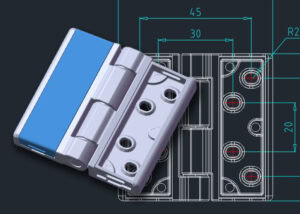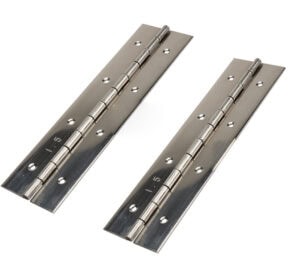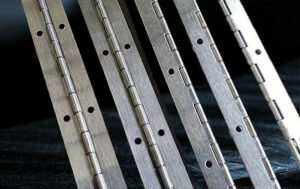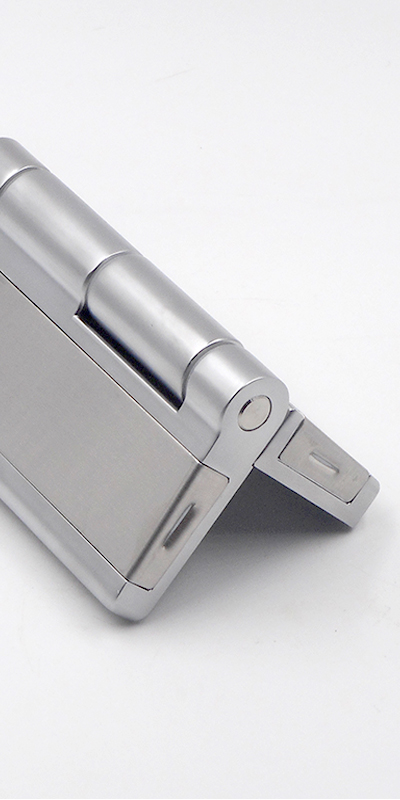Soft close hinges are a popular choice for cabinets and doors, but many wonder if they wear out faster than traditional, regular hinges. Let’s explore how these two types compare in terms of durability and performance.
What Are Soft Close Hinges and How Do They Work?
Soft close hinges are designed to prevent doors from slamming by gently closing them. They contain a dampening mechanism that controls the speed and force with which a door closes.
Soft close hinges function by using a hydraulic or pneumatic system that slows the door’s movement as it approaches the closed position, preventing slamming and reducing wear.
Soft close hinges feature a more complex design than regular hinges. They use a spring, hydraulic damper, or pneumatic system to control the door’s motion. This prevents the door from slamming shut, making them especially useful for high-traffic areas. Regular hinges, on the other hand, are simpler and rely purely on metal components to allow doors to open and close without any damping action.
This added complexity means soft close hinges may experience wear in the additional moving parts—specifically the dampers or hydraulic pistons. However, with proper maintenance, high-quality soft close hinges (like Blum soft close hinges) can last as long as, or even longer than, traditional hinges. The longevity of soft close hinges largely depends on usage, maintenance, and the materials used in their construction.
To maintain the longevity of soft close hinges, regular inspection and lubrication of moving parts is recommended. When properly aligned and serviced, soft close hinges can offer a lifetime of smooth, controlled door movement.
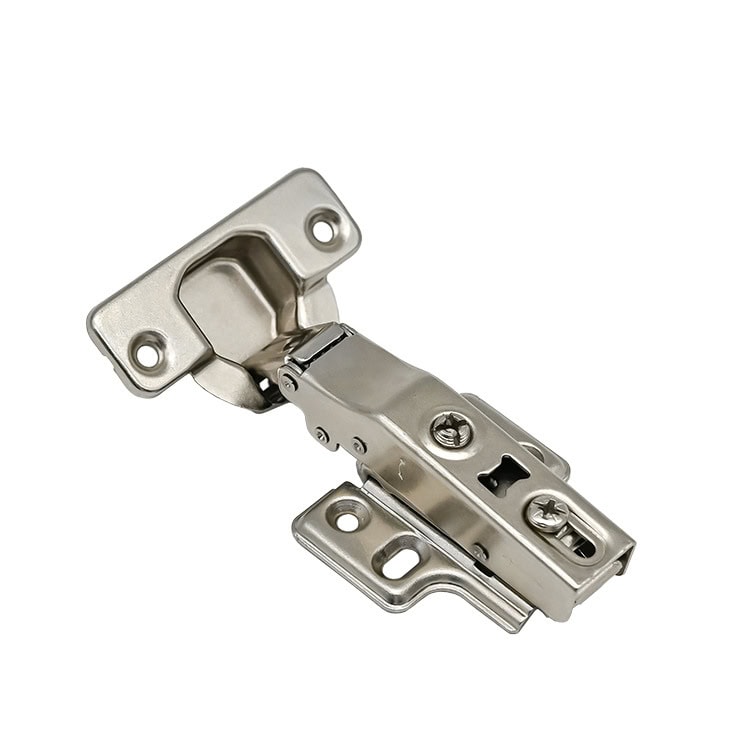
Do Soft Close Hinges Wear Out Faster Than Regular Hinges?
Soft close hinges do not necessarily wear out faster than regular hinges, but their additional components and mechanisms make them more susceptible to certain types of wear.
The wear rate of soft close hinges can be faster than regular hinges due to the complexity of their internal components, but proper care and maintenance can minimize this issue.
Unlike regular hinges, which only rely on the simple pivoting motion of metal arms, soft close hinges contain additional elements such as hydraulic dampers, springs, or pistons. These components are essential for the slow and controlled closing action that prevents door slamming but can also wear out with prolonged use.
- Hydraulic Fluid Leaks: In hydraulic soft close hinges, the fluid within the damper may eventually leak, reducing the effectiveness of the damping mechanism. This results in a less smooth closing action, or the hinge may stop working altogether.
- Spring Fatigue: The springs within soft close hinges may lose tension over time. If this happens, the hinge will no longer function as intended, causing the door to close more abruptly.
- Misalignment: Soft close hinges rely on precise alignment between the door and the frame. Misalignment can place additional stress on the internal components, accelerating wear.
Regular hinges, being simpler, don’t have these complex components and are therefore less prone to such specific forms of wear. However, the absence of the soft-closing feature means they are less convenient and less durable in terms of functionality, as they allow doors to slam and potentially damage both the door and the frame.
Factors that affect longevity include:
- Frequency of use: More frequent door operation means more wear.
- Door weight: Heavy doors place more stress on hinges, especially soft close versions.
- Maintenance: Proper lubrication and alignment can help extend the life of both soft close and regular hinges.
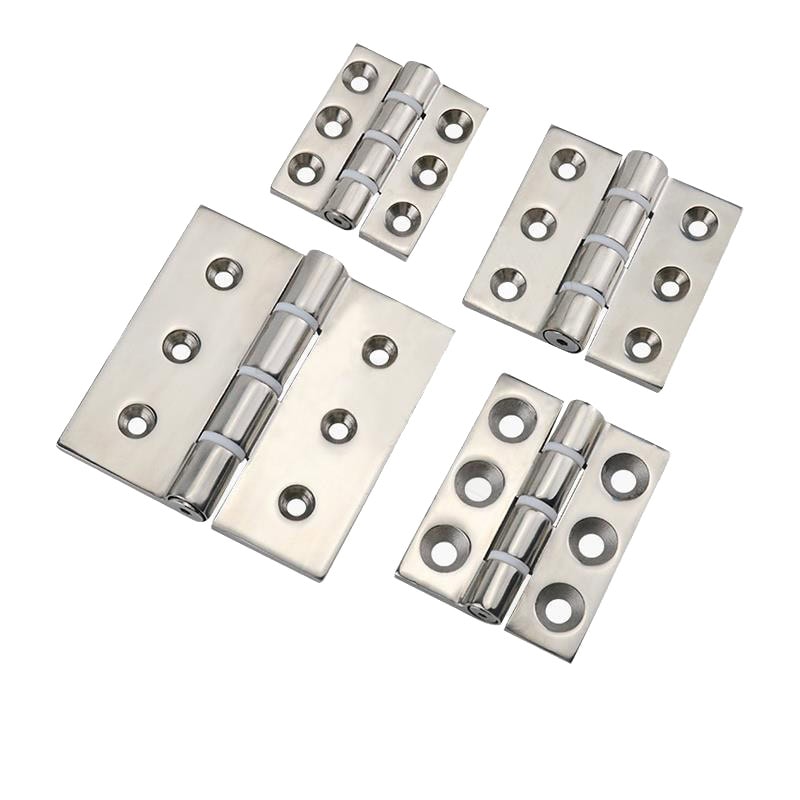
Soft Close Hinges vs Regular Hinges: Cost and Durability Considerations
The cost of soft close hinges is generally higher than regular hinges, but this doesn’t always translate to a shorter lifespan.
Soft close hinges are typically more expensive than regular hinges, but they can offer greater convenience and functionality, which may justify the investment in the long term.
While soft close hinges can cost several times more than regular hinges, their added functionality can be worth the price, especially in areas where door slamming is a concern. The mechanism that controls the door’s closing action provides smoother and quieter operation, making soft close hinges desirable for both residential and commercial settings.
- Cost of Soft Close Hinges: The price of soft close hinges can vary depending on the brand and quality. High-quality options such as Blum soft close hinges tend to be more durable and have a longer lifespan, making them a better long-term investment.
- Heavy Duty Hinges: For heavy doors, soft close hinges can be especially useful. Heavy duty hinges provide the strength needed to support larger, more substantial doors, and the soft close mechanism ensures that these heavy doors close gently and securely.
In contrast, regular hinges are less expensive but offer no dampening action. They are suitable for lighter doors and situations where a quiet, soft-closing feature is unnecessary. When considering hinges for doors in high-traffic areas or locations that require a smooth closing action (such as cabinets or marine hinges), soft close hinges may be the best choice despite their higher upfront cost.
Soft Close Hinges for Heavy Doors: Heavy doors require hinges that can handle additional stress. Soft close hinges designed for heavy-duty applications can offer added strength and durability, making them a suitable option for larger doors, cold storage room hinges, and other specialized applications.
Common Issues and Maintenance Tips for Soft Close Hinges
Soft close hinges, while durable, can experience problems such as failure to close softly or stopping altogether. Regular maintenance is key to avoiding these issues.
Common issues with soft close hinges include loss of tension, fluid leakage, or misalignment. Regular lubrication and proper installation can help maintain their functionality.
Soft close hinges, like all mechanical components, require maintenance to ensure they continue functioning effectively over time. Some of the most common issues with soft close hinges include:
- Loss of Hydraulic Fluid: If the hydraulic damper loses fluid or the seals wear out, the hinge will lose its ability to slow the door’s closing. This can result in a door that slams or closes too quickly.
- Spring Tension Loss: The springs that control the damping action may lose tension, causing them to become ineffective. This may result in the door closing too abruptly.
- Misalignment: If the door is not properly aligned with the hinge, it can cause uneven stress on the mechanism. Misalignment may result in increased wear on the hinge’s internal components, leading to premature failure.
How to Maintain Soft Close Hinges:
- Lubrication: Regularly lubricate the hinges to prevent rust and wear. This helps to reduce friction and ensure smooth movement.
- Check Alignment: Ensure that the door is correctly aligned with the hinge to avoid undue stress on the hinge.
- Replace Worn Parts: If the hydraulic fluid or spring tension shows signs of wear, replace the affected parts before the hinge fails completely.
For doors requiring heavy-duty functionality, consider weld on hinges or detachable hinges that are designed for high-stress applications. These options provide a higher level of durability for specialized installations.
Conclusion
Soft close hinges may wear out faster than regular hinges if not maintained properly, but they offer superior performance and durability when cared for. Quality and maintenance are key factors in prolonging their lifespan.

